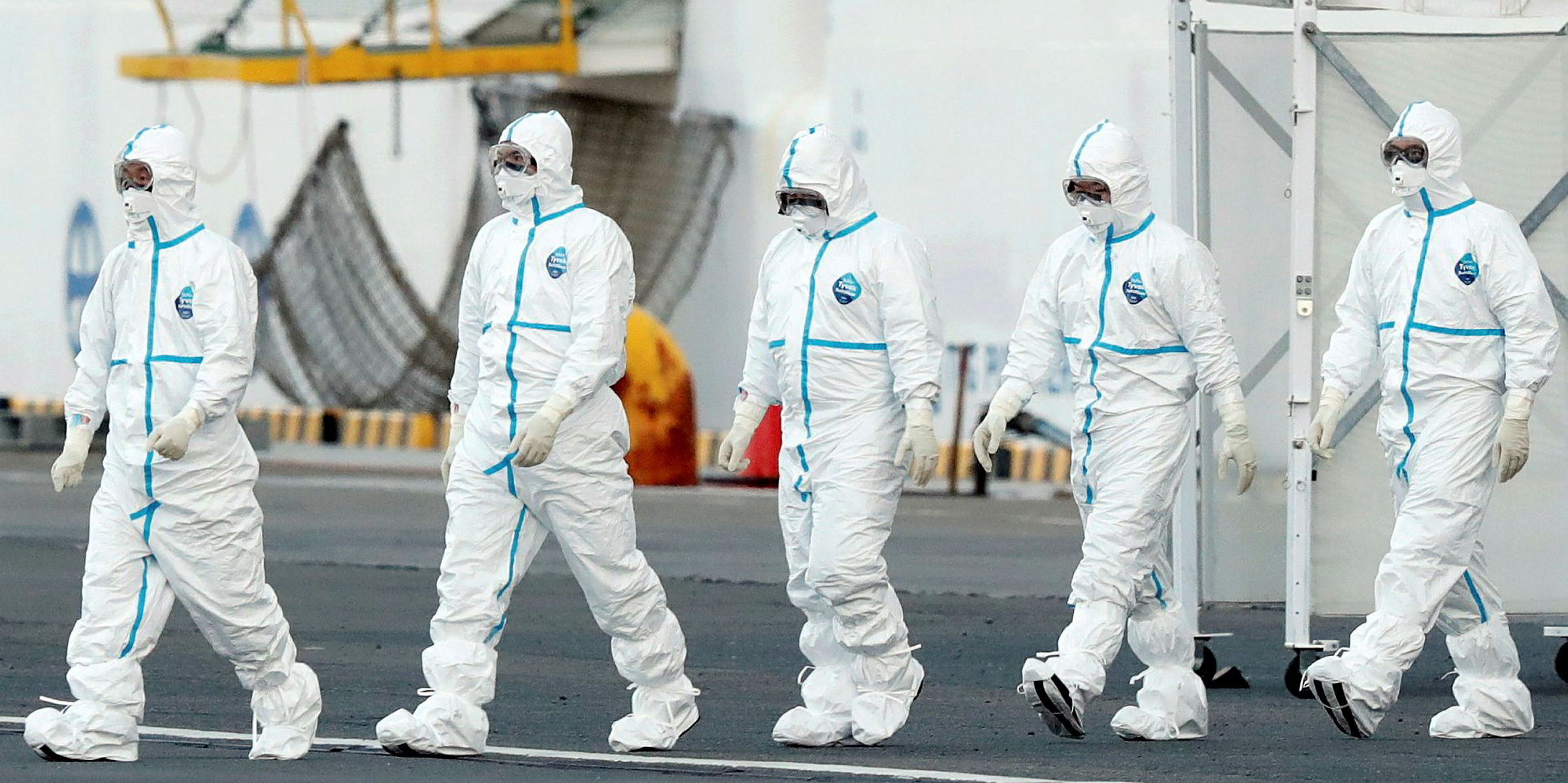The shipyard, tanker and gas carrier sectors are the least likely to enjoy a "bounce-back" factor after the coronavirus, according to Clarksons Research.
The latest report into the impact of the outbreak by the research department of shipbroking giant Clarksons concludes that the situation remains dynamic and it is still too early for any clear understanding of the disease's impact.
But shipbuilding scores two red lights out of three in the Clarksons scale for measuring market impact over the next three to six months.
Activity at shipyards and ship repair facilities is being hit by labour and equipment shortages due to travel restrictions and extended holidays, Clarksons said.
Some yards have enforced force majeure on deliveries and there have been delays in sourcing parts and equipment.
Chinese yards account for 34% of global vessel deliveries in cgt terms.
Clarksons said the outlook is uncertain later in 2020, with long delays possibly increasing delivery slippage into 2021.
Tanker trouble ahead?
In the tanker sector, Chinese oil demand has been reduced by 3m barrels per day (bpd), according to some sources, due to travel disruption. Imports will fall and tanker demand affected.
China imports 23% of global crude output.
Sinopec is reducing refinery throughput in February by 600,000 bpd and non-state-owned "teapot" refiners are reducing utilisation rates by between 30% and 50%.
"Chinese crude oil imports [are] likely to fall; OPEC are considering implementing further production cuts if oil prices remain under pressure," Clarksons Research said.
Lost demand from travel restrictions suggest limited ‘bounce-back’ potential later, it added.
Bulkers to bounce back?
The Baltic Capesize Index free fall of 118% from the 2019 average is in part reflective of trends pre-coronavirus, while the index weighting excludes all scrubber-fitted vessels, smaller bulkers and other cargo segments, Clarksons said.
China accounts for 35% of global seaborne dry bulk imports and the virus will hit domestic steel production and iron ore and coal imports, although the extent is uncertain, it added.
But there is some hope of a bounce-back from economic stimulus or delayed construction projects.
Boxships, meanwhile, are reliant on China for about 30% of exports globally.
The outbreak has impacted industrial production and manufacturing.
"Operators have announced a number of additional blanked sailings from China over the next three weeks due to the impact of coronavirus," the shipbroker said.
The duration of the effect is unclear, it added, but a bounce-back factor could be seen from delayed shipments.
Gas cargoes delayed and diverted
In the gas sector, China makes up 18% of global seaborne imports.
Buyers are reported to be delaying and diverting February cargoes, while Chinese energy company CNOOC has declared force majeure on LNG contracts.
There are also reports of LNG regasification terminals operating at reduced capacity.
Clarksons sees a likely negative impact on Chinese LNG imports, with low demand likely to exert further pressure on Asian LNG pricing, and hit inter-basin trading.
Delays are possible to contract agreements with Chinese buyers for US LNG projects.
There is limited bounce-back potential, the report said.
Global hit coming
Overall, Clarksons said the market impact is generally expected to be greater than the SARS virus in 2003.
This is due to the service sector constituting a greater share of the Chinese economy, and China now accounting for 22% of global seaborne imports, up from 7% back in 2003.
Economists have estimated Chinese gross domestic product growth reduction of about 2% in the first quarter, with the full-year growth down 0.5%. The global hit could be 0.2%
"The situation remains dynamic with some evidence of expectations of initial economic impact increasing, the potential to indirectly impact global economic sentiment, and potential for second-half recovery due to activity ramp up and/or Chinese stimulus," the report said.
Downward trends also exist around cruise and ferry markets, with future bookings likely to take a hit.
Vessel earnings in general have declined sharply this year, but pre-existing trends relating to supply and demand, seasonality and sanctions have had and continue to have an impact, said Clarksons.







